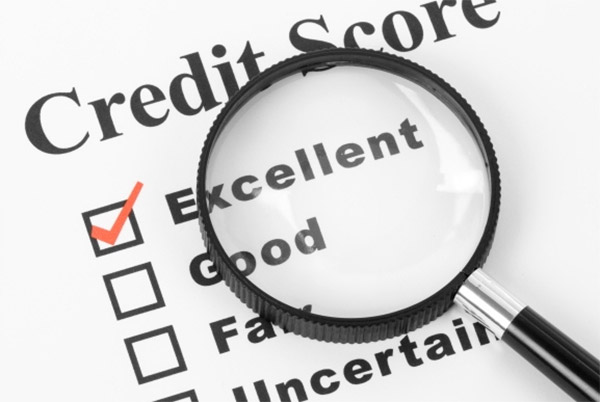Having a good credit score is one of the most important determining factors when it comes to borrowing money. It also determines the low rate that you’ll get when you do. Trying to determine a specific number that means you have a “good” credit score can be tricky. There are lots of different credit scores that are used to determine whether or not you get a loan. One lender’s “good” score may only be another lender’s “fair”. You may also score differently from one model to the next. Fortunately, there are some broad rules of that can help a person determine whether their credit is good or not. We’ll break this down below.
How Do I Rate?
The FICO score and VantageScore 3.0, along with most other credit scores, operate within the range of 300 to 850. Within that range, however, there are a number of categories ranging from bad to excellent. In generally, they usually look like this:
- Excellent Credit: 750+
- Good Credit: 700-749
- Fair Credit: 650-699
- Poor Credit: 600-649
- Bad Credit: below 600
However, lenders have their own unique definitions of what they consider a good credit score to be. A lender that is looking to approve more borrowers might decide to approve any applicants with credit scores of 680 or higher. Another lender, who is more selective, might only approve those with scores of 750 or higher. On the other hand, both lenders might offer credit to anyone with a score of at least 650, but they may decide to charge a higher interest rate to consumers with scores below 700.
The Credit Score Range Scale
Many different credit scores are available to lenders, and each of these lenders have developed their own credit score range. It is important that you know your credit score range. The following ranges are used by the major scoring models:
- FICO Score range: 300-850
- VantageScore 3.0 range: 300–850
- VantageScore scale (versions 1.0 and 2.0): 501–990
- Experian’s PLUS Score: 330-830
- TransUnion New Account Score 2.0: 300-850
- Equifax Credit Score: 280–850
The higher the number is, the lower the risk, higher scores can get approved for credit more easily while getting the best interest rates. This is also the reason why they are more likely to get discounts on insurance. However, what number is considered to be a “high” score depends on what type of score is actually being used.
Let’s say your FICO score is 840, so you’re just 10 points shy of having the highest score possible, making your credit “super-prime.” On the other hand, if you have an 840 VantageScore 2.0, that’s not quite so spectacular when you consider that you’re 150 points away from the highest score.
What’s Your Score?
Don’t assume you have a good score just because you have been faithful to pay your bills on time. The only way you will truly know whether or not you have a good credit score is to check.
What Can I Get With a Good Credit Score?
The consumers with the strongest credit scores can get some of the best credit cards, including rewards cards and those with 0% balance transfer offers.
When it comes to time to borrow, a good credit score can also get you a lower interest rate. When buying a $300,000 house with a 30-year fixed mortgage and good credit, you could end up saving more than $90,000 over the life of the loan compared to if you had bad credit. It certainly pays to understand your credit scores so that you can make them as strong as possible.
How Do I Get a Good Credit Score?
It can be helpful to choose one credit score and then monitor your progress with this score over time. Anything that is seen as a risk factor, such as the amount of debt you’re carrying being too high, should be monitored and not just a three-digit number. Addressing whatever may be weighing down any one single score will most likely bolster your standing across all of the scores because most models are based on the same five categories: payment history, length of credit history, credit utilization, mix of accounts, and new credit inquiries.
It is important that you make all of your loan payments on time while also keeping the debt that you owe to below at least 30%. Also make sure that you maintain credit accounts long term, add a mix of installment loans and revolving loans over time, and also manage how often you apply for new credit during a short timeframe.
Who Are the Major Credit Reporting Agencies?
You first need to know where to start: the consumer reporting agencies (CRAs). Also known as the credit bureaus, these agencies compile all of your credit information. Although you can find many specialty credit reporting agencies, the three credit bureaus of Experian, TransUnion, and Equifax are the agencies lenders use when they are looking to pull your traditional credit reports.
There’s still a lot of confusion, however, when it comes down to what these major credit bureaus actually do. For example, what kind of information is collected, and where does that information end up? Do they create credit scores or credit reports, and what’s the difference, really? we’ll break that down below.
What Do the Major Credit Reporting Agencies Do?
In short, these agencies compile all of the details about your credit history. This way, potential lenders are able to see what type of risk they’ll be taking on by giving you a new credit card or a loan.
Contrary to what many people believe, the major credit bureaus are for-profit companies, and they are not owned by the government. They do, however, have reporting relationships with credit card issuers, lenders, banks, and any of the other financial organizations and then compile your credit history; this is what we refer to as credit reports.
What Kind of Information Do Credit Bureaus Collect?
Information about your existing credit accounts is included in your credit reports as well as your payment history from a number of different financial institutions. This includes credit card companies, mortgage companies, banks and any other lenders you may have worked with at some point in the past.
Businesses may also report some information about your payment history to the credit bureaus, but they tend to only negative information.
A great deal of information is collected by the major credit reporting agencies, but there are really only five key factors that are listed on your credit reports that are used to determine whether you can receive credit when it comes time to get a line of credit or a loan: your payment history, the types of accounts in your credit file, how long you’ve had credit, your amount of debt, and the number of hard inquiries on your credit file.
What Is Done With This Information?
Once this information has been collected by the major credit reporting agencies, a credit report is generated. The credit bureaus then sell all of that information back to lenders so that they can determine your creditworthiness. Using this information, lenders can then decide whether or not it is prudent to lend to you. If they decide that you are someone they want to offer a loan or issue a credit card to, the information that was supplied by the credit bureaus will also be used to help decide what your interest rate will then be.
How Long Do Credit Bureaus Keep My Information?
Your name, address, and other personal information can remain on your credit reports along with positive financial information indefinitely.
Negative information is compiled by the credit bureaus as well, demonstrating how much risk you present as a potential borrower. Most of the above details remain on your credit reports for up to seven years.
Below is a breakdown of some of the negative information that is collected by the credit bureaus and how long it is likely to stay on your credit reports.
- Bankruptcy: Ten years from the date of filing for Chapter 7 filings, seven years for Chapter 13 filings and seven years for each record marked as “Included in BK”
- Charge-Offs (when a creditor or lender writes off the balance of a delinquent debt and does not expect it to be repaid): Seven years
- Closed Accounts: Seven years if the account was paid late but no expiration date if the account was always paid on time
- Collection Accounts: Seven years from the last late payment on the original account
- Inquiries: Two years
- Late Payments: Seven years from the date of the late payment
- Judgments: Seven years from the filing date if paid; longer if unpaid
- Tax Liens: Fifteen or more years if left unpaid; seven years from the date if the lien is paid
Do All Three Credit Bureaus Have the Same Information?
The three main credit bureaus don’t communicate or share information with one another. This is the reason why your credit file is often slightly different from Experian, Equifax, and TransUnion. It’s a smart idea to review and verify the accuracy of each one of your reports from the big three.
If you find an inaccuracy on any of your reports, you will need to dispute it. Keep in mind that if an error appears on multiple reports, you will need to file a separate dispute with each bureau separately in order to report the misinformation. They will allow you to file a dispute either through their websites or by mail.
How Do You Get a Copy of Your Credit Reports?
You are entitled to a free credit report from each of the three bureaus once every twelve months. You can request the free annual credit reports from Equifax, Experian, and TransUnion at AnnualCreditReport.com. If you find that you need to get an additional credit report, you can simply purchase one.
Understanding the Difference Between Credit Reports & Credit Scores
Even though you now have some more insight into what kind of information the credit bureaus collect, as well as how the bureaus use this information, you could possibly still be wondering what the real difference is between the credit scores you hear so much about and the credit reports.
The information in your credit reports is basically used to generate a numerical representation of your supposed creditworthiness. Because the information collected can vary, your credit scores will most likely vary as well.
Additionally, there are many different credit scoring formulas, and these change from lender to lender. Although you’ve probably heard of FICO scores before, you probably didn’t realize that you have dozens of FICO scores.
Reviewing your credit reports can be very helpful, and it will also assist you as you monitor your scores for any sudden changes, which could possibly indicate identity theft. When you know your scores, you will have a better idea of what types of terms and conditions you qualify.








[…] Know your credit score […]
[…] Visa is widely accepted by over 44 million merchants worldwide. You can apply and get approved for these Visa credit cards even with a low credit score. […]